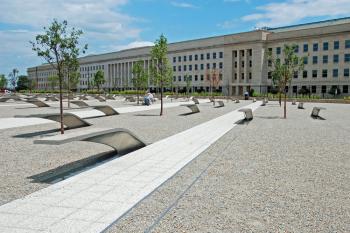Charles Nesson
Charles Nesson
Charles Nesson is an American attorney who has been associated with many prominent legal cases. He is known for his specialized focus on issues of intellectual property law. One of the most famous of his cases was his successful 1971 defense of Daniel Ellsberg.
The roots of the case date back to 1967, when then US Secretary of Defense Robert McNamara convened a task force composed of 36 analysts to create a history of the Vietnam War up to that point. The study was completed in 1969 and totaled 7,000 pages. Of these, 3,000 were original analysis, while the remainder contained government documents related to the Vietnam War. 15 copies of this report were made, two of which were sent to the RAND Corp., which employed Daniel Ellsberg as a military analyst. With assistance from others, Daniel Ellsberg made copies of the report, which came to be known as the "Pentagon Papers."
Two years later, excerpts from these papers were made public for the first time in a series of articles published by the newspaper "The New York Times." A court order requested by the White House temporarily restricted publication, but this order was quickly reversed by the Supreme Court. The publication of this information embarrassed the Nixon White House.
On June 28, 1971, Daniel Ellsberg voluntarily turned himself in to the authorities, stating that he felt it was his responsibility to make the information public and that he was willing to accept any legal consequences. In August of that year, while his case was making its way through the legal system, a group of individuals acting at the behest of the White House burgled the offices of Ellsberg's psychiatrist in a failed attempt to gather information discrediting him. However, they were unable to locate his file.
Charles Nesson acted as co-counsel for the defense in the trial, which began in January of 1973. In April of that year, the attempted burglary of Ellsberg's psychiatrist's office was made known to the judge in a memo. Shortly thereafter, the presiding judge, William Byrne, disclosed that he had been approached by the White House about being appointed director of the FBI. Shortly thereafter, more evidence emerged of legal misconduct against Ellsberg. Specifically, it was learned that the FBI had illegally wire-tapped conversations Ellsberg had conducted, information which the prosecution was aware of and had failed to share with Charles Nesson and his co-counsel as required by the law.
In response to the increasing evidence of government impropriety, Charles Nesson and his co-counsel were successful in obtaining a mistrial ruling from William Byrne, thereby exonerating Ellsberg.
Another prominent case in which Charles Nesson was involved was Anderson v. Cryovac, a prominent trial concerning six children who developed leukemia as the result of contamination of water wells by two companies. Charles Nesson served as one of the counselors working on behalf of the families of the children.
Related Topics
- Froilan Tenorio
- Political Correctness
- Michelle Bachman
- Marshall Formby
- Aaron Schock
- President of the United States
- Hank Johnson
- Valerie Plame
- Janet Napolitano
- Virginia Foxx
